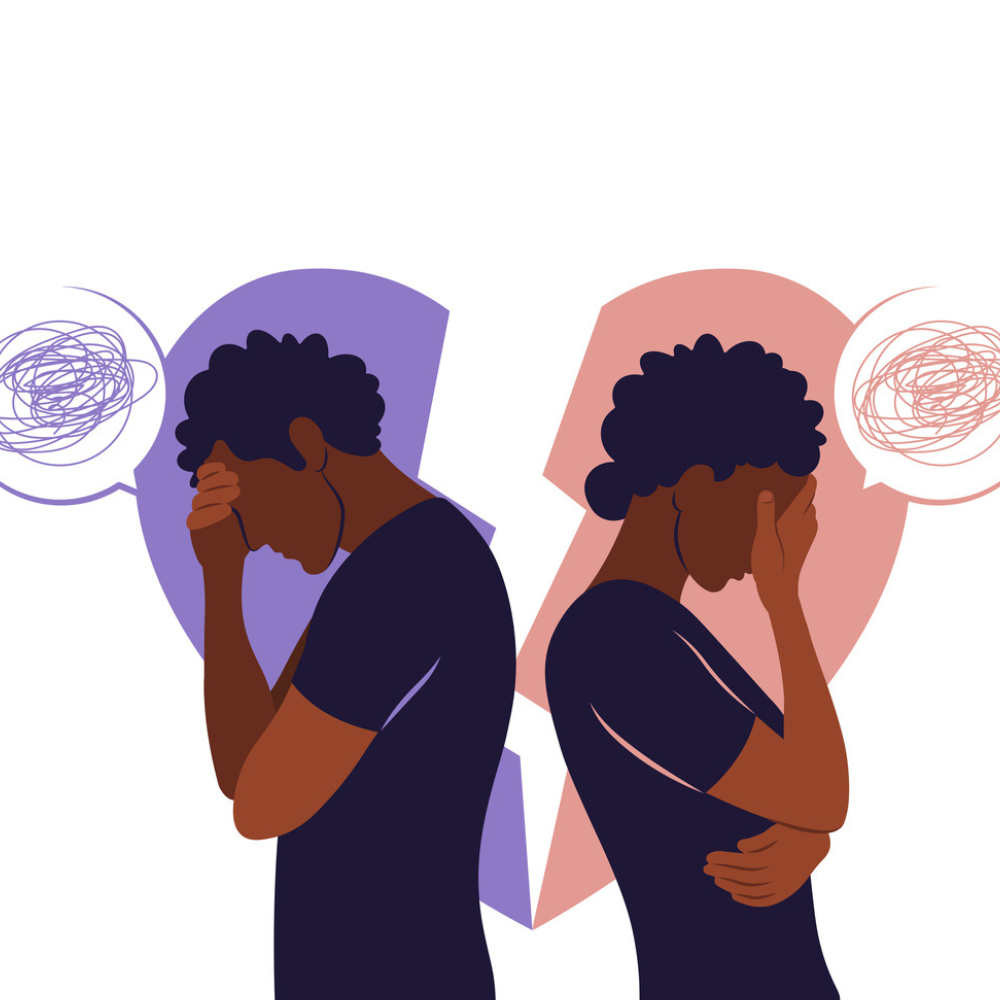Mental Mondays: The Link Between Excessive Talking And Social Anxiety

A creative writer with a voracious appetite for fashion, beauty,…
D
o you experience a mix of excitement and dread when speaking in public or being around people? Does your mind always race with thoughts of what you might have said wrong after a social interaction? Perhaps you consider yourself loquacious, yet you feel uneasy and anxious in social situations. If this sounds familiar, you might be dealing with social anxiety.
It’s often misunderstood when someone who is always talkative and occasionally interrupts others claims to have social anxiety. But the truth is, social anxiety can manifest in various ways, and excessive talking can be one of them. So what is social anxiety and how does it affect individuals who appear outgoing but grapple with nervousness when communicating with others?
What is social anxiety?

Social anxiety, also known as social phobia, is a common mental health condition characterized by an intense fear of social interactions and performance situations. People with social anxiety often experience excessive worry and self-consciousness, fearing judgment, embarrassment, or rejection by others. These anxious thoughts and feelings can be overwhelming, making even simple social situations challenging to navigate.
While it may seem paradoxical for talkative individuals to have social anxiety, the connection between the two lies in coping mechanisms. Talking excessively can be a way to manage nervousness or to fill silences, masking underlying discomfort. People with social anxiety may engage in non-stop chatter to deflect attention from their anxiety or to seek reassurance from others. Most times, it comes as a result of pressuring oneself to talk to fit in. Interrupting others could be an attempt to control the conversation, pose as someone knowledgeable, or steer away from potentially uncomfortable topics.
Signs of social anxiety in talkative individuals

- Excessive talking, rapid speech, or stumbling over words can be indicative of social anxiety. The nervous energy fuels the urge to talk, often leading to rambling or over-explaining.
- After social interactions, individuals with social anxiety may obsessively analyze their conversations, fearing they may have said something inappropriate or misunderstood.
- Talkative individuals with social anxiety may seek constant reassurance and validation from others to alleviate their anxieties.
- Ironically, talkative people with social anxiety may struggle with assertiveness, often agreeing with others to avoid conflict or potential rejection.
- The fear of being judged or negatively evaluated by others may lead talkative individuals to become hyper-aware of their words and actions.
How social anxiety affects communication
Social anxiety can significantly impact how talkative individuals communicate. It can lead to a cycle of overthinking, self-criticism, and avoidance of social situations. The fear of embarrassment or rejection may hinder genuine connections with others, leading to feelings of isolation and loneliness.
In addition, people with social anxiety often worry about being judged or negatively evaluated by others. This fear can lead to expressing opinions and ideas they don’t necessarily believe in just to fit in and feel accepted.
How to deal with social anxiety

- Contact a mental health expert who focuses on anxiety problems, such as a therapist or counselor. Treatments that work well include exposure therapy and cognitive-behavioral therapy (CBT).
- Incorporate effective methods for controlling social anxiety like deep breathing, mindfulness, and progressive muscle relaxation.
- Gradual exposure to social situations is necessary. To become better with more difficult interactions, begin with smaller, less daunting ones.
- Recognize harmful thought patterns and challenge them. Encourage yourself to doubt the likelihood of the outcomes you are afraid of.
- Work on active listening techniques to divert the focus away from your anxiety and onto the conversation at hand.
- Use assertiveness training to help you express your thoughts and opinions confidently without excessive worry about others’ reactions.
- Engage in group activities or hobbies with others to create a comfortable and supportive environment for practicing social interactions.
Featured image: PeopleImages/iStock
For the latest in fashion, lifestyle, and culture, follow us on Instagram @StyleRave_
This is a Style Rave original content exclusively created for our readers. If reproduced, distributed, transmitted, cached, or otherwise used by any other publishing house or blogs, such use should provide a direct link to this source article. Use of and/or registration on any portion of this site constitutes acceptance of our Terms & Conditions and Privacy Policy.
—Read also
A creative writer with a voracious appetite for fashion, beauty, lifestyle and culture. As one who's passionate about the advancement of the woman, creating content that inspire smart style and living, and positive lifestyle changes is a calling I take seriously. At Style Rave, we aim to inspire our readers by providing engaging content to not just entertain but to inform and empower you as you ASPIRE to become more stylish, live smarter and be healthier. Follow us on Instagram @StyleRave_ ♥







